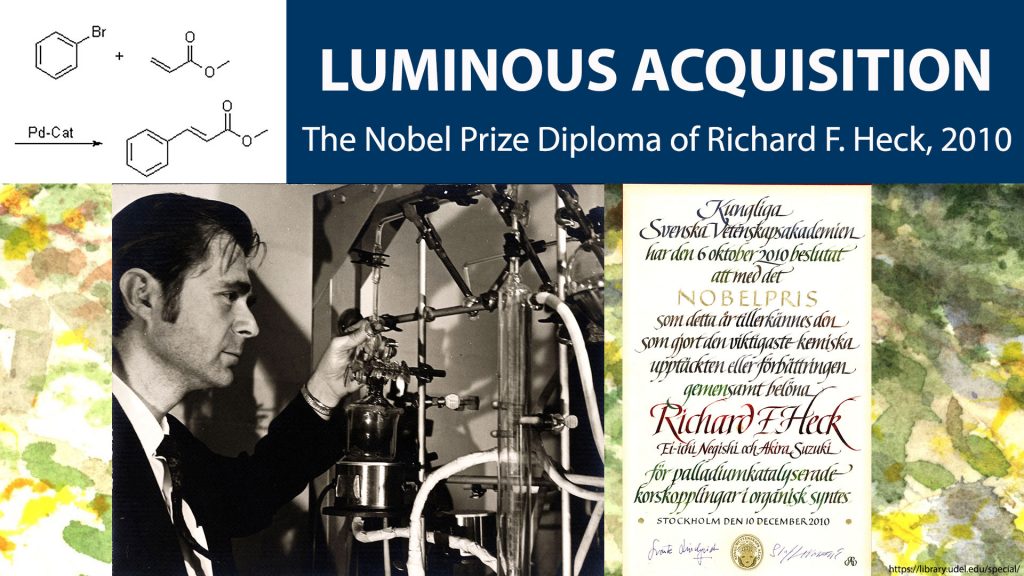
Richard F. Heck (1931-2015), namesake of the Heck Reaction, was an American chemist awarded the 2010 Nobel Prize in Chemistry for his work with palladium to catalyze organic chemistry. Heck and fellow laureates Akira Suzuki (Hokkaido University) and Ei-Ichi Negishi (Purdue University) were recognized for their pioneering research in palladium-catalyzed cross couplings in organic synthesis, which is now at the heart of everything from pharmaceutical manufacturing to polymer production, from DNA sequencing to electronics.
Richard Heck joined the faculty of the University of Delaware in 1971 to continue his studies in organometallic chemistry, after 14 years of research at Hercules Corporation on palladium catalysis. At UD, he discovered that palladium catalysts enabled reactions of aryl iodides with alkenes to form carbon-carbon bonds, the reaction now known as the Heck Reaction. This work is recognized as “the foundation of virtually all the metal-catalyzed coupling reactions that are an essential component of modern organic synthesis.”
Richard Heck rose to the honor of Willis F. Harrington Professor in the Department of Chemistry and Biochemistry, which he also held as Professor Emeritus after his retirement from UD in 1989. The University continues to honor Prof. Heck with the annual Heck Award and Lectureship, and is now pleased to hold the Richard F. Heck papers in the University of Delaware Library, Museums and Press.

